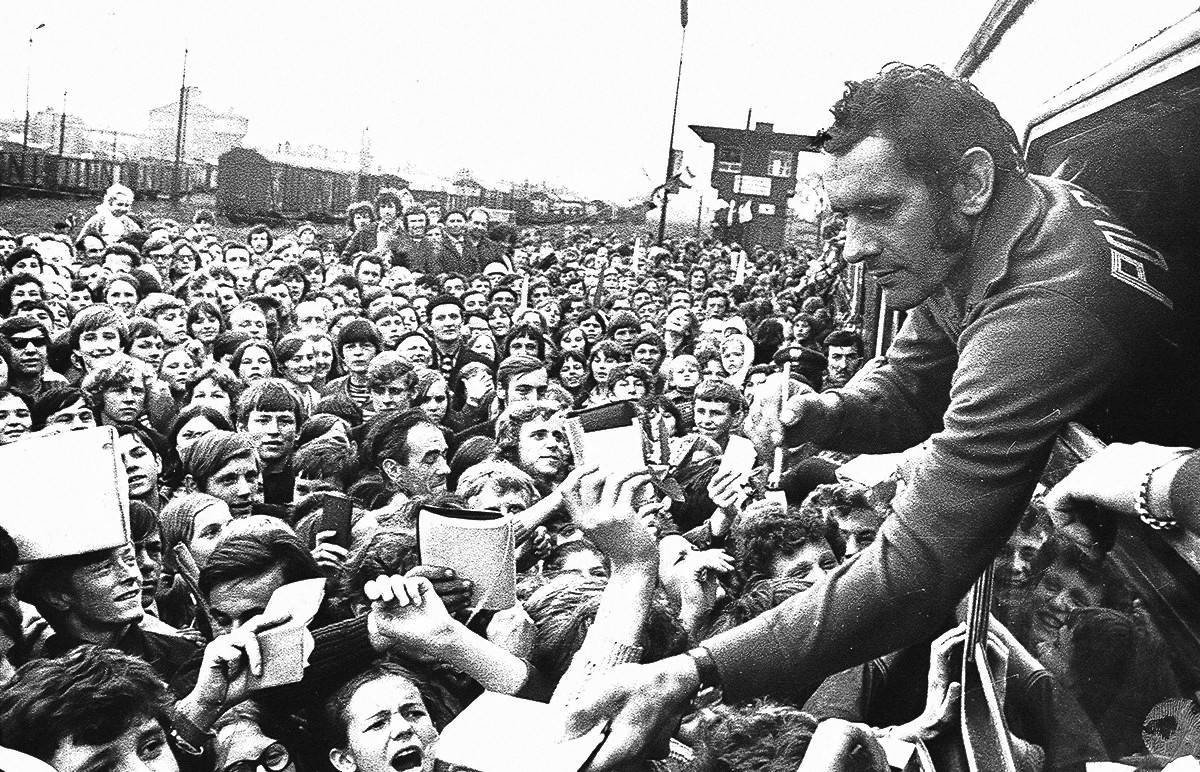It’s the summer of 1975 and Dave and I are on holiday; we’ve taken the afternoon off from sitting in the late lamented ‘Rectory’ public house in Dysart to venture along the arrow straight but gently rolling, ‘Stannin’ Stane Road’ which runs due east out of Kirkcaldy towards the seaside resort of Leven, a Mecca for Glaswegian holiday makers.
The Scottish Milk Race, Stage Four, 148 kilometres out of Galashiels in the Scottish Borders will finish in Leven, Fife today; but we fancy a vantage point away from the holiday crowds and take up position on one of the ‘Stanin’ Stane’ drags, clutching obligatory refreshing bottles of Barr’s Irn Bru.
The announcer’s car tells us that two are clear, Number 13 – Phil Griffiths for GB and Number 31 – Ryszard Szurkowski for Poland.
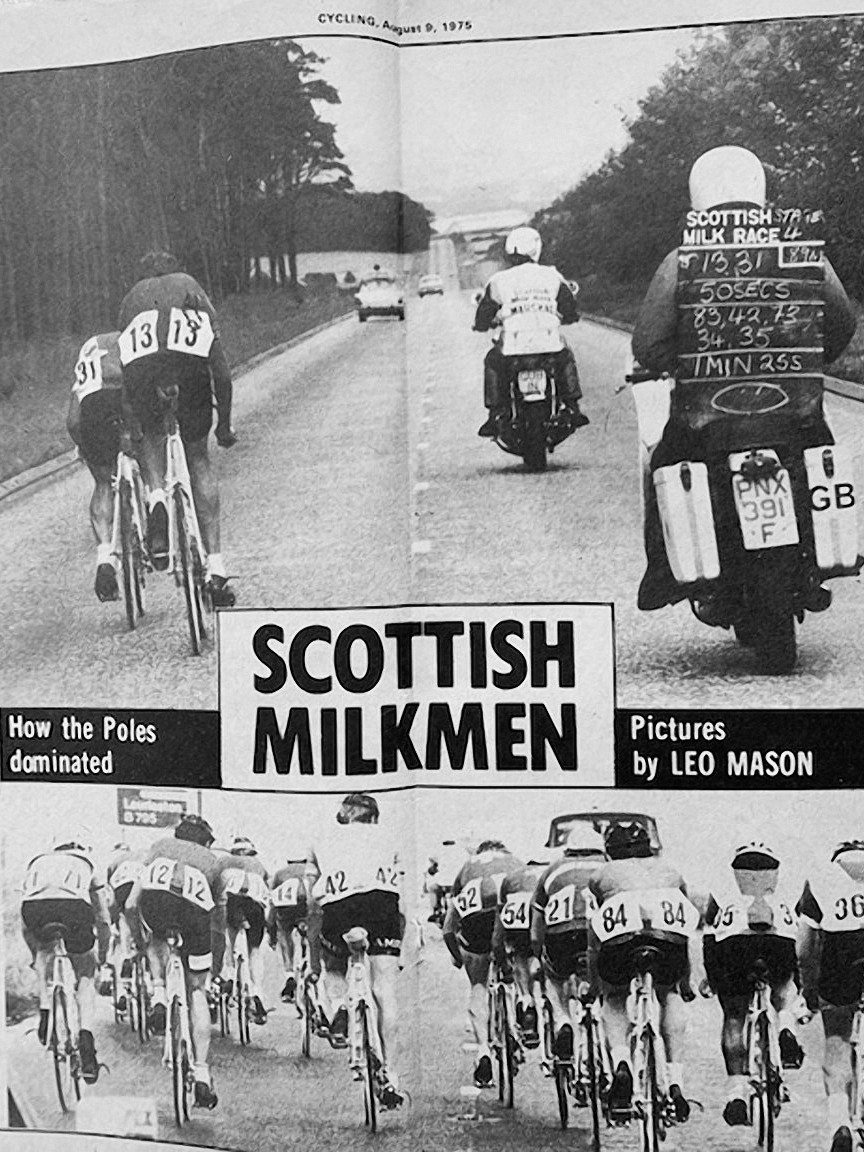
We’d learn later that Griffiths had punctured earlier in the day, changed his rear wheel and only had a 14 sprocket to try and contend with that bear of a man, Szurkowski, who’s stocky, compact build gave little shelter to the gangly Griffiths who was turning himself inside out, his face a rictus of pain as he tried to hold on whilst the Pole hammered the 13 cog all the way into Leven where, as Cycling Weekly magazine of the day said; ‘Szurkowski won a formality of a sprint against Griffiths.’
It should be remembered that Griffiths was a man who held the yellow jersey in the Peace Race and was a Commonwealth Games Road Race silver medallist.
Dave and I still talk about that day; on a par with watching Hinault destroy the field in a Tour time test or Hampsten in all his glory on l’Alpe d’Huez.
Sadly, at 75 years-of-age Szurkowski – the man who you can argue was the greatest amateur rider in the history of the sport – has passed away.
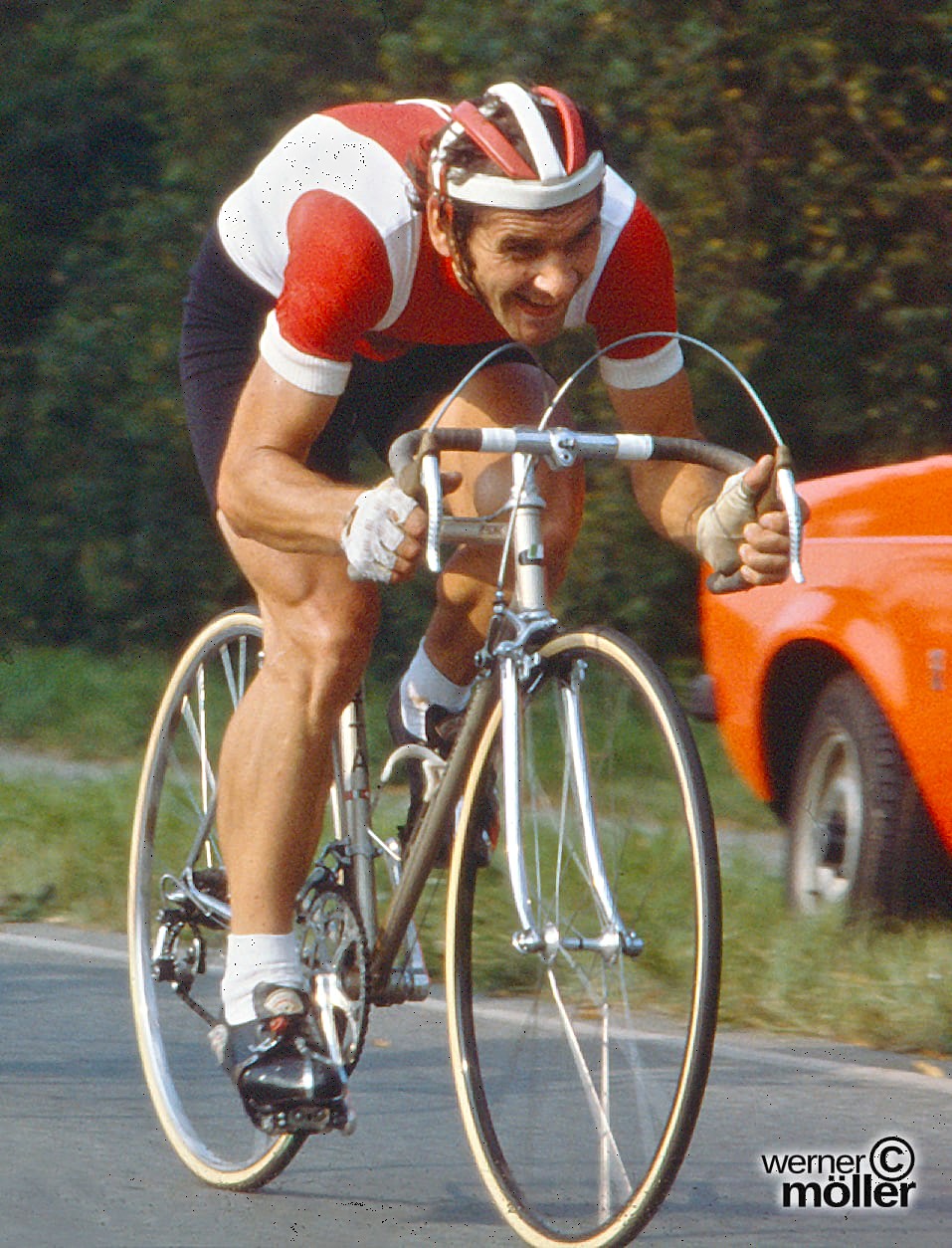
We’ve borrowed from Polskie Radio’s tribute to the man, which gives us his career highlights; we’re sure they won’t mind, given the circumstances:
“Szurkowski came from Lower Silesia.
“He began his adventure with cycling in 1963, starting as an independent amateur.
“The first time his name came to prominence was five years later, when, as a virtually unknown cyclist, he won the Polish cyclo-cross championship.
“In May 1970, he won the Peace Race [the ‘amateur Tour de France] for the first time. He also won the general classification of this event in 1971, 1973 and 1975.
“In 1973 Szurkowski became the world road race champion and was in the team which won the 100 kilometre team time trial to become a ‘double’ world champion.
“The Poles would win the TTT title again in 1975 to render him a triple champion of the world as well as a 12 time Polish National Champion across the disciplines.
“He was twice (1972, 1976) an Olympic silver medallist in the team time trial.
“He was widely regarded as the best amateur rider in the world.
“Cyclists from communist countries were not allowed to sign professional contracts at that time.
“After the end of his career, Szurkowski successfully managed the national team (1984-88).
“In 1985, his protégé Lech Piasecki won the Peace Race and became the world champion, and three years later, in the Olympic Games in Seoul, the white-and-reds won silver in the team time trial.
“Szurkowski was the founder of the first Polish cycling professional group Exbud (1988-89), the director of the Polish part of the Peace Race, and the president of the Polish Cycling Association (2010-11).
“On June 10, 2018, he had an accident during the Veterans Race in Cologne. Two cyclists crashed right in front of him, he fell on his face, suffering spinal cord injuries and a tetraplegia. In addition, he had a damaged skull, a broken jaw in several places, a broken nose and a torn lip. He underwent several spine and facial surgeries in Germany.”
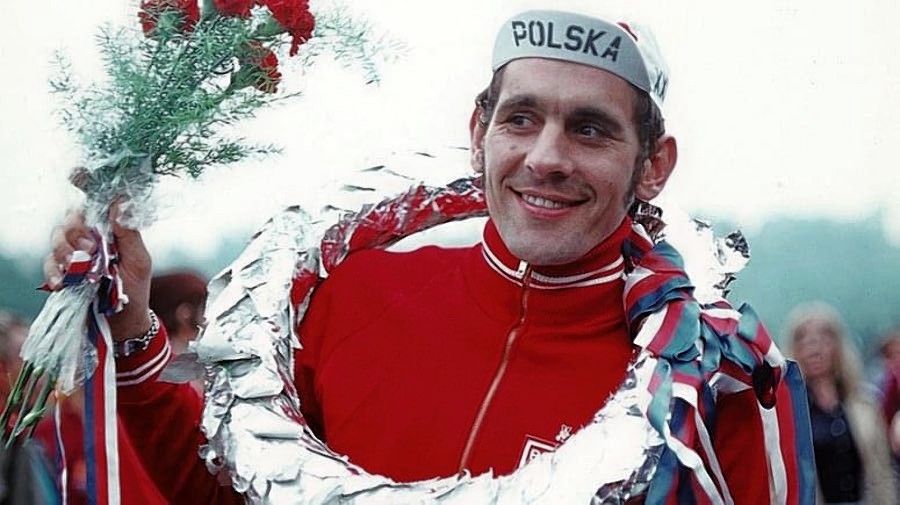
Whilst Polskie Radio have done a good job of the highlights, they could also have mentioned stage wins in the Tours of Poland, Algeria, Scotland, Britain, Bulgaria, Austria and Egypt.
Then there were his 13 Peace Race stage wins and those in the GP Tell, the Tour de L’Avenir, Circuit de la Sarthe, Settimana Bergamasca and Olympia Tour.
In 1974, in a rare for the time pro-am race, he rode Paris-Nice, notching two second and one third stage placings; it took some of the fastest and strongest professional riders of the day to deny him victory – Rik Van Linden, Eric Leman and Eddy Merckx himself.
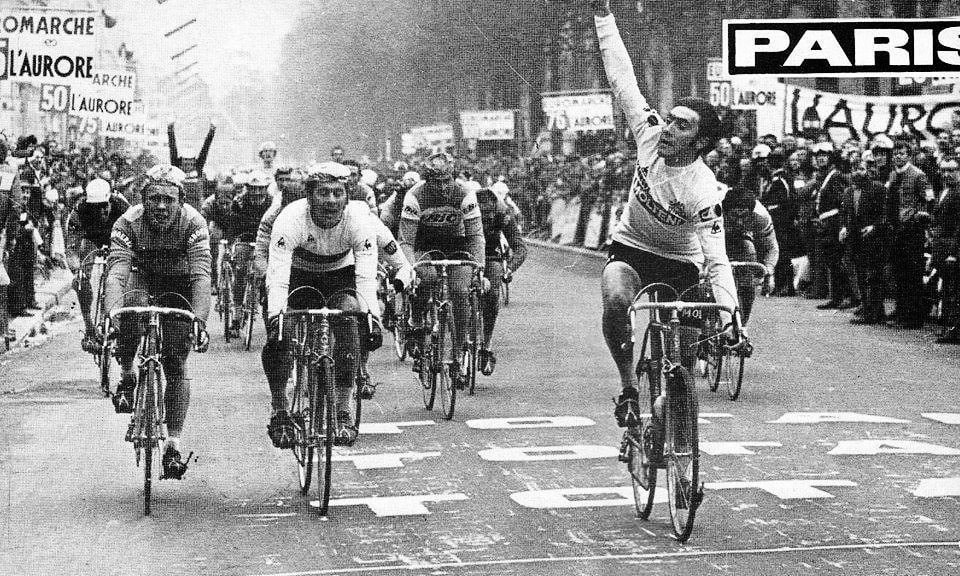
Merckx was so impressed with the Pole that he offered him a contract with Molteni; however, as my friend, ace photographer John Pierce said; ‘if he’d signed during that era it would have meant a one way ticket out of Poland.’
Albeit some of the pros weren’t best pleased with amateurs being allowed to muscle in on their prize money, Merckx wasn’t among them and became firm friends with his amateur counterpart.
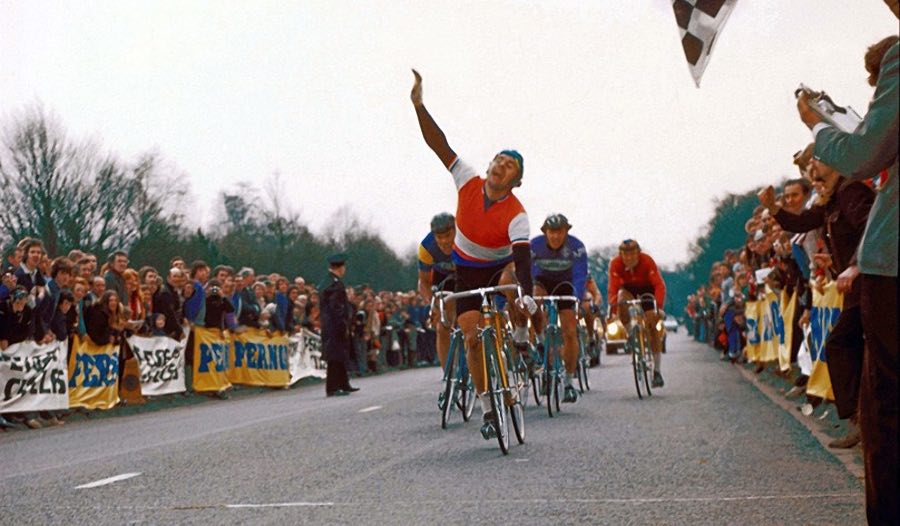
Szurkowski was no stranger to British shores, as well as his Scottish and British Milk Race stage wins, he also won the prestigious Pernod Grand Prix in 1975 ahead of Britain’s top roadman of the day, the late Phil Edwards.
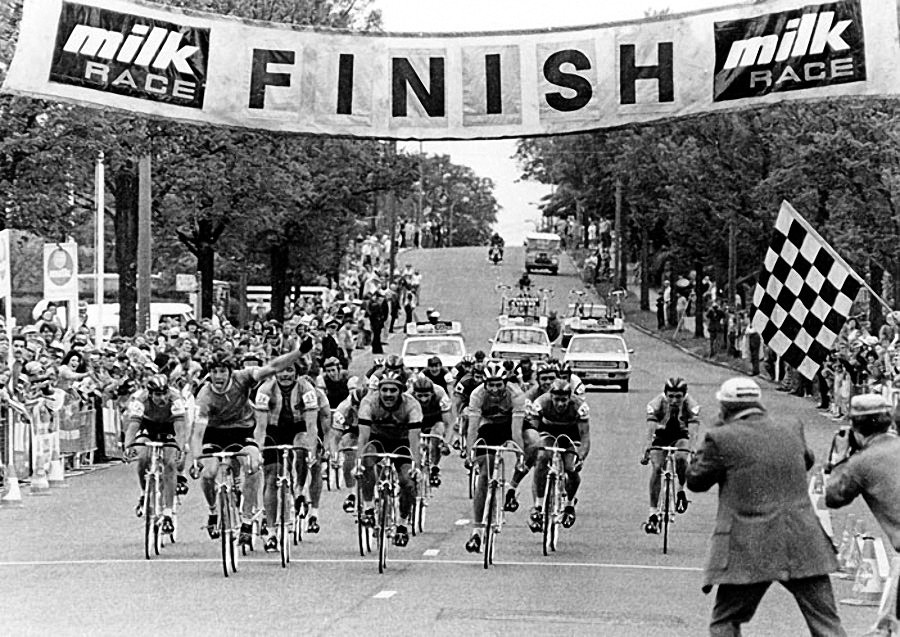
As well as the breadth and quality of his wins, his longevity must also be considered; he won his first stage in the Tour of Poland in 1968 and the last of his 15 stage victories in the race some 16 years in 1984.
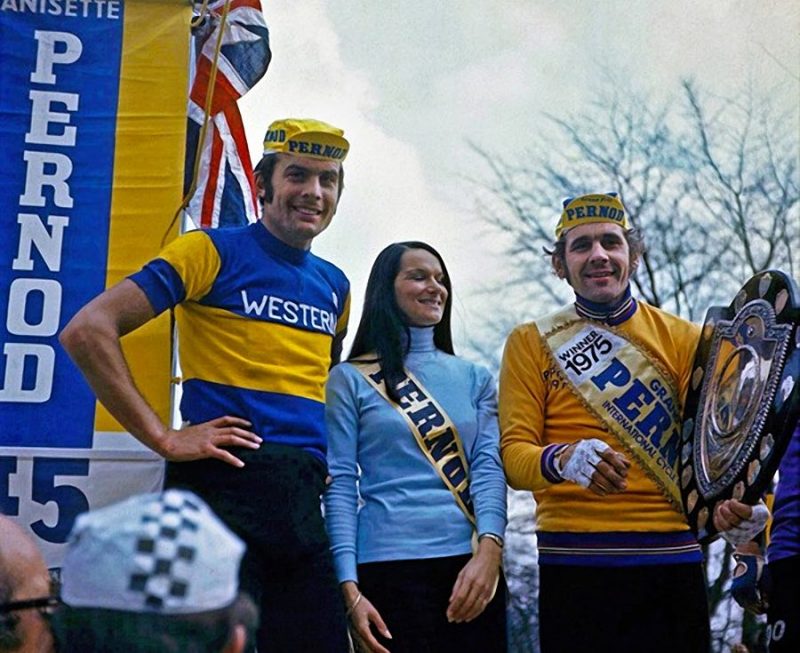
Last word to Polish former World Road Race Champion; Michał Kwiatkowski:
